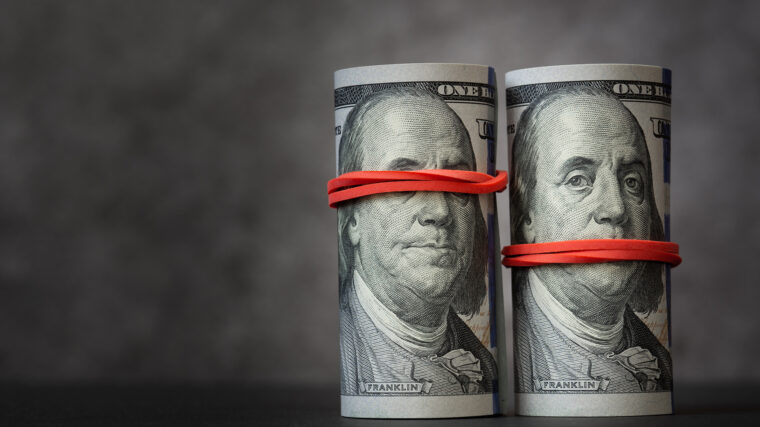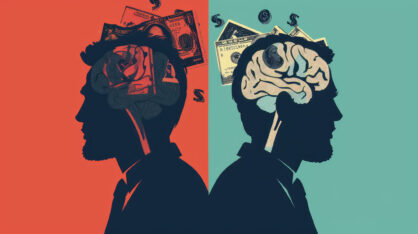Introduction
Money plays a fundamental role in human societies. Beyond its function as a medium of exchange, it has taken on profound meanings that go beyond economic transactions, symbolizing freedom, power, and social status. Anthropologists study money not just as currency but as a significant cultural artifact that shapes human behavior, values, and social structures. For many, money represents the ability to make independent choices, providing a sense of autonomy and self-direction that may otherwise be unavailable. Yet, money also acts as a powerful social and institutional tool, influencing individuals’ status, access to resources, and overall social mobility (Maurer, 2006).
In different societies, money takes on unique meanings and roles, shaped by cultural beliefs, values, and norms. While Western cultures often view money as a measure of individual success and self-worth, other societies may see it as a communal resource, where wealth signifies a person’s responsibility to family and community. This dual nature, symbolizing both personal independence and social obligation, reflects the complex ways money operates within various cultural contexts. By examining the works of scholars such as Maurer, Ingham, Simmel, Alchian, and Menger, we can gain insight into money’s multifaceted role as a source of freedom and power, which influences both personal identity and collective social structures. This article explores these themes, revealing how money serves as a gateway to individual autonomy and a mechanism of control within society.
How Money Provides Freedom
One of the primary ways money represents freedom is by giving individuals the ability to make choices. In many societies, having money means having options, whether it’s deciding where to live, what to eat, or even pursuing personal interests and hobbies. This sense of freedom is particularly meaningful because it allows individuals to lead self-directed lives. Instead of depending on others for basic needs, people with money can shape their own paths, pursue their own goals, and make choices that reflect their values and preferences. In this sense, money is more than a means of exchange; it’s a tool that empowers people to take control of their lives and explore new possibilities.
Anthropologist Bill Maurer highlights that money’s role in providing freedom varies across cultures. For example, in some cultures, money offers people the chance to participate in social and economic activities that were previously out of reach. Someone with financial resources can start a business, invest in education, or travel, all of which expand their world and create opportunities for growth. The freedom that money provides is often linked to individual identity and personal achievement, allowing people to feel self-sufficient and capable of taking on new challenges. However, this freedom is not absolute. Even as money provides independence, it also binds people to social norms and financial systems that can limit personal agency (Maurer, 2006).
Money as a Source of Power and Social Influence
While money gives people the freedom to make choices, it also holds power because of the way it shapes social relationships and hierarchies. In any society, those with more money tend to have greater influence and control, both over their own lives and within their communities. Geoffrey Ingham, a sociologist, points out that money allows individuals and groups to wield power by controlling resources, accessing opportunities, and setting social standards. This influence isn’t just about purchasing power—it extends to social status, reputation, and authority. Money can open doors to better education, influential networks, and positions of leadership, often creating advantages that are passed down through generations (Ingham, 2004).
Money’s role in establishing power is closely linked to how societies are structured. In many modern economies, financial institutions and governments have the authority to regulate money supply, interest rates, and access to credit, thus shaping the economic environment in which people live. This control over money can reinforce social inequalities by limiting the economic power of those with fewer resources, while giving more opportunities to those already in favorable positions. Ingham’s work highlights how money, as an institution, is more than just a neutral tool it actively shapes social order by concentrating power among certain groups and limiting it for others. As a result, money serves as a double-edged sword, providing freedom for some while reinforcing restrictions for others.
The Cultural Dimensions of Money as Freedom and Power
The meanings of money are not universal but instead vary widely across cultures. In Western societies, money often represents individual success and achievement. People are encouraged to “make their own money” and be financially independent, as this is seen as a sign of maturity and responsibility. This idea of money as a measure of personal worth shapes how people think about themselves and their social roles, linking financial success with identity and self-esteem. Maurer explains that in many capitalist cultures, the amount of money a person has often reflects their social value, leading people to strive for financial success as a way to gain respect and social approval. This view reinforces the idea that money is a pathway to both personal freedom and social power (Maurer, 2006).
However, in other cultural contexts, money’s meaning can be entirely different. In some societies, for instance, money may be used more in communal contexts rather than for individual gain. It may be expected that wealthier individuals share their resources to support family and community members, making money a tool for social bonding rather than personal freedom. In such cultures, the power of money comes not from individual independence but from the ability to strengthen social ties and fulfill communal obligations. This cultural diversity highlights that while money universally symbolizes power and freedom, the specific ways in which it is valued and used are shaped by cultural beliefs and social expectations (Menger, 2000; Simmel, 1978).
The Complex Relationship Between Money, Freedom, and Control
While money provides freedom by enabling choices, it also creates dependency on financial systems and social structures. People need money to survive, but they are also bound by the rules and limitations imposed by the financial systems that distribute it. Ingham emphasizes that modern societies are organized around money, which means individuals must participate in the economic system to meet their basic needs. This dependency often limits the freedom that money seems to offer, as people are required to work, earn, and save within a system that may restrict their choices rather than expand them. For instance, while credit can help people access more resources, it also binds them to debt obligations, reducing their financial freedom in the long term (Ingham, 2004; Alchian, 1977).
This dual nature of money, providing both freedom and dependency, reflects a paradox. On one hand, money gives people the power to make decisions and live independently. On the other, it makes individuals reliant on economic systems and social institutions that can dictate how much freedom they truly have. Alchian’s work on the economic benefits of money explains how it simplifies transactions, making it easier for people to function independently in a market. However, this independence is often limited by external factors like income inequality, job availability, and access to credit. Thus, while money is seen as a pathway to freedom, it often reinforces existing social structures, leaving some individuals with less control over their lives than others.
Concluding Reflections on Money as Freedom and Power
Money, as an institution and symbol, encapsulates the complex relationship between freedom and power in society. It allows individuals to make choices, shape their lives, and exercise control over their circumstances. Yet, it also serves as a tool for maintaining social order, as those who control money systems can influence who has access to resources and opportunities. From an anthropological perspective, money’s meaning is deeply connected to cultural values and social structures, with its role varying widely across different societies. In capitalist cultures, money often represents individual freedom and success, encouraging people to pursue financial independence. In other cultures, however, money may be more connected to social bonds and communal responsibilities, symbolizing power in a way that emphasizes sharing rather than individual gain. By understanding money’s psychological and cultural dimensions, we can appreciate its dual role as a source of empowerment and a tool for social control. As money continues to shape societies worldwide, it remains a powerful symbol of both freedom and the complex dynamics of power.



